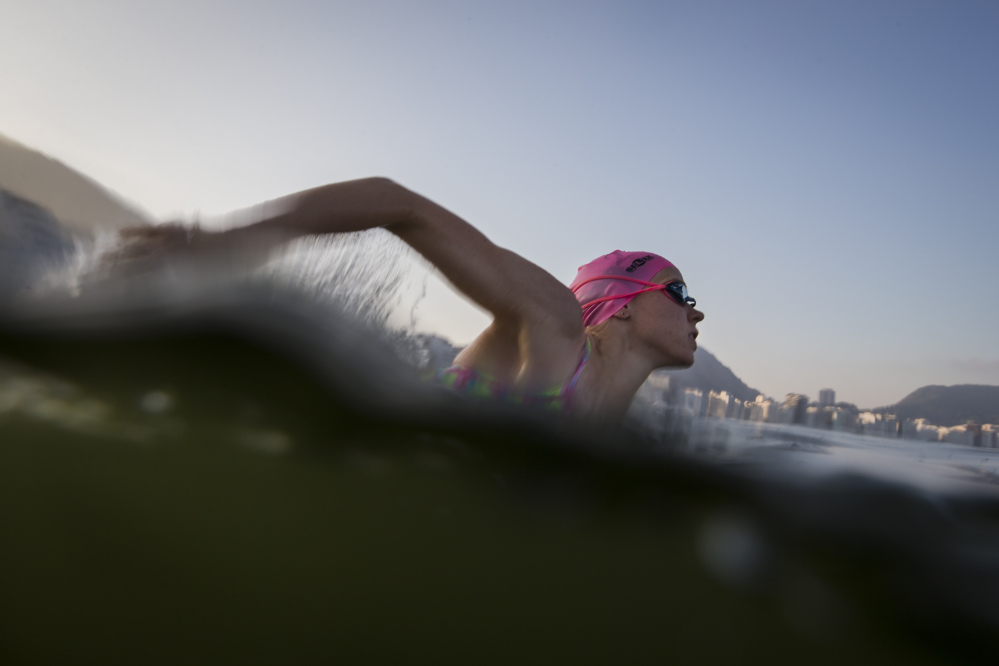RIO DE JANEIRO — The World Health Organization has asked the IOC to analyze virus levels in Rio de Janeiro’s Olympic waters, and the governing body of world sailing says it will start doing its own independent virus tests.
The moves come after an Associated Press investigation showed a serious health risk to Olympic athletes in venues around Rio rife with sewage.
In a statement to the AP, the World Health Organization said it suggested the International Olympic Committee start monitoring for viruses at the Rio venues.
“WHO has also advised the IOC to widen the scientific base of indicators to include viruses,” the statement said. “The risk assessment should be revised accordingly, pending the results of further analysis. The Rio Local Organizing Committee and the IOC are requested to follow WHO recommendations on treatment of household and hospital waste.”
A spokesman from the Rio organizing committee referred comment to the IOC, which is meeting in Kuala Lumpur, Malaysia.
VIRUSES SEEN AS BIGGER PROBLEM
Olympic organizers and the Brazilian government have tested only for bacteria to decide if the water is safe. Many experts say viruses are a far bigger problem and need to be monitored.
The International Sailing Federation said independently it would start testing for viruses.
“We’re going to find someone who can do the testing for us that can safely cover what we need to know from a virus perspective as well as the bacteria perspective,” Peter Sowrey, chief executive of the ISAF, said. “That’s my plan.”
The sailing venue in Guanabara Bay is badly polluted, as is a separate venue for rowing and canoeing – Rodrigo de Freitas lake – in central Rio. The AP investigation also showed venues for triathlon and open-water swimming off Copacabana Beach had high virus levels that pose a threat to athletes and tourists.
“I want to make sure that everyone who goes out in the water is as safe as possible and is given the right guidance and right security.”
The AP analysis showed dangerously high levels of viruses and bacteria from sewage in venues where about 1,400 athletes will compete in water sports, in the games which open in a year – Aug. 5, 2016.
In Rio, much of the waste and sewage goes untreated and runs down hillside ditches and streams into Olympic water venues that are littered with floating rubbish, household waste, and even dead animals.
At the world swimming championships in Kazan, Russia, swimmers said they were worried about the situation in Rio.
‘PEOPLE WILL PAY ATTENTION’
“The athletes and the athletes’ commission have expressed their concern at the current problems with the quality of water, the cleanliness of the water,” Vladimir Salnikov, a former Olympic gold-medal winner, said. “That will be put into a recommendation, and people will pay attention to that.”
Shin Otsuka, an executive board member of the International Triathlon Union, said on Friday his body was considering testing for viruses.
The ITU is holding an Olympic qualifying race on Sunday using the waters off Copacabana Beach.
Costa Rican triathlete Leonardo Chacon said he knows the risks, but will take them.
“We know we are exposed to viruses, maybe to a health problem later,” he said on Friday in Rio. “But in my case, I have invested so much to prepare myself for this, and I want this to happen because I can’t recuperate this investment any other way other than competing and winning the points that I need to win.”
When Rio was awarded the Olympics in 2009, it promised cleaning its waters would be an Olympic legacy. But Rio Mayor Eduardo Paes has repeatedly acknowledged this will not be done, calling it a “lost opportunity.”
Send questions/comments to the editors.



Success. Please wait for the page to reload. If the page does not reload within 5 seconds, please refresh the page.
Enter your email and password to access comments.
Hi, to comment on stories you must . This profile is in addition to your subscription and website login.
Already have a commenting profile? .
Invalid username/password.
Please check your email to confirm and complete your registration.
Only subscribers are eligible to post comments. Please subscribe or login first for digital access. Here’s why.
Use the form below to reset your password. When you've submitted your account email, we will send an email with a reset code.